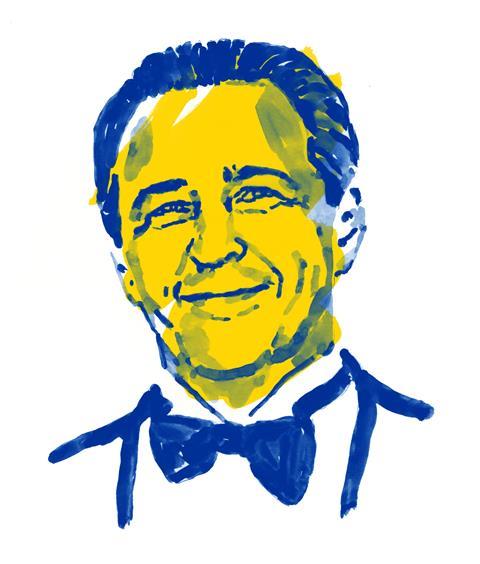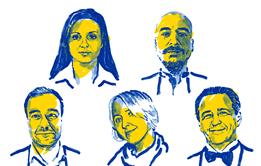Planning for the European Crystallographic Meeting in Lviv in 2025 is in full swing
Grygoriy Dmytriv is the dean of the faculty of chemistry at the Ivan Franko National University of Lviv. Early in the invasion many students dedicated their time to volunteering with charities; some served in the armed forces. Dmytriv remained in Lviv and has been working throughout the war

Despite the war, chemists in Lviv keep working. We took a breather, thanked our armed forces and are now back to work. At least there are not as many attacks as on other cities. There is discomfort, but it’s bearable compared to what others are going through.
The end of the spring semester and the beginning of the autumn one were very different. Lots of students came back from abroad, and since September everything has stabilised. Nearly all of the internally displaced people from Kharkiv, Kyiv, and Odesa have gone back. The ones who are staying are the ones displaced from the temporarily occupied territories: Berdyansk University, Mariupol University. But in Lviv we only have a few such people.
Our Polish colleagues donated us a portable power station, which we use as a backup during doctoral defences, and some electric blankets that we sent to our soldiers at the front line. Anything that helps to survive blackouts is very much needed. During the blackout, in teaching labs we can still run reactions in test tubes, but if we need to switch on a spectrophotometer, we can’t do it. Any help in getting backup power supplies – portable electric stations, not diesel generators - would be very much appreciated. For now, we have one at the faculty, and it can cover the basic needs of one lab, but we have four departments.
I think it would be a great help to grant us the right to translate the best chemistry textbooks from English to Ukrainian. We don’t have many resources to do it by ourselves like publishing house Мир did – in our libraries, we still have these books but all they are in the Russian language.Why translate at all? Because the level of English varies a lot among students.
The teaching process continues. Our accreditation work continues. All the research we did before the full-scale invasion continues. There are many funding competitions we won in the past that are currently in a bit of a suspended state, but we still keep completing tasks on those. For instance, we had a project funded by the Ministry for the Development of the Local Communities on eco packaging. We had funding in 2021, but last year there was no funding. Yet the project continues, and we keep reaching milestones.
For new research topics we would like to focus more on helping Ukraine during and after the war – shifting our priorities to be useful for our society in such difficult times. For example, scientists from the inorganic chemistry department are collaborating with scientists from Italy and Slovakia to develop boron carbide materials for use in ultralight armour plates. We are also applying for a grant from the Science for the Recovery of Ukraine in the War and Post-War Periods programme to develop new materials for hydrogen accumulators.
Men still cannot leave Ukraine, with some exceptions. I went abroad for two weeks to represent the organisational committee of the European Crystallographic Meeting that we got the right to host in 2025. I insisted that Lviv remains the host, and we retained the hosting right. The world believes in us, and we believe, and the city believes that in 2025 we will be hosting this event. Anyone interested in crystal chemistry should book their visit.
This article is based on an interview performed by Anastasia Klimash
Ukraine’s chemists persevere through a year of war

One year into the full-scale Russian invasion, Ukrainian chemists face blackouts and missile strikes
- 1
- 2
- 3
- 4
- 5
 Currently
reading
Currently
reading
Chemists in Ukraine revisited: Grygoriy Dmytriv
- 7
- 8



























No comments yet